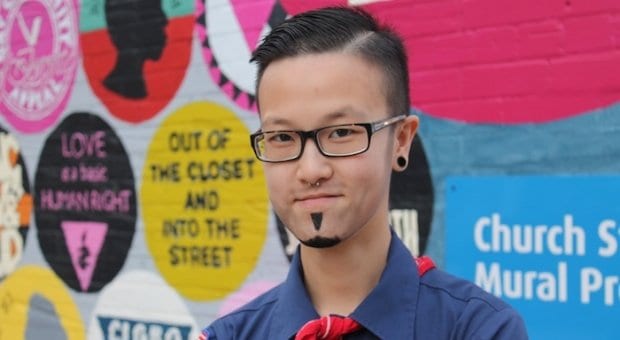Jane’s Walk, a festival of walks that honour urban planner and author Jane Jacobs, has gained some ground since it began in Toronto in 2007. Last year, organizers boasted more than 800 walks in 22 countries around the world. Torontonians led about 150 of them.
“We’ve been building every year,” says Jasmine Frolick, a Jane’s Walk’s Toronto coordinator. “Right now, live on the website, we’ve had more [walks] than we’ve ever had in previous years at this time.”
Frolick says Jane’s Walk isn’t just a walking tour.
“It’s about being a walking conversation, and those conversations don’t always end when the walk is over. It’s a great way to talk about what matters to you with people you’ve never met before in a really safe environment.”
Jane’s Walk organizers expect to see more people coming out to voice their opinions because it’s an election year in Toronto. And with WorldPride around the corner, there’s also been a push to include more LGBT-related walks.
“What we’re trying to do is expand the dialogue about gender, sexuality and LGBTQ. We think those are going to turn into a series of really great walks this year,” says Denise Pinto, director of Jane’s Walk.
One example of this is The Bearded Ladies — the first-ever drag-king walk. Frolick and Robyn Visheau, with the help of drag king Trevor Wood, will lead the tour. “It’s VIP access to the drag-king world, which so few people have experience with or even know exists,” Visheau says.
The walk will start at the Church and Wellesley intersection at 6:30pm on May 4.
Urban planner James Bar will lead another new walk. Bar, who was recently featured in an Xtra story about LGBT homeless youth, teamed up with PFLAG, the Students Commission of Canada and Egale Youth Outreach for a walk called What’s Good for the Gays Is Good for the Gander!
Bar based the walk on research linked to his master’s degree on the issue of homelessness. “I looked at LGBTTQ youth homelessness in Toronto and tried to see how the profession of urban planning could better create the provisions for making shelters for LGBTTQ homeless youth while improving the current system of shelters,” he says.
The walk starts at The 519 Church Street Community Centre at 11am on May 3.
Other LGBT-related walks include Church Street Mural Project, which showcases 12 colourful murals within the Church-Wellesley Village that celebrate Toronto’s LGBT community; Red Pill, Blue Town, which takes people on a journey through downtown Toronto to highlight some of the challenges trans citizens face; and Walking and Working: A Woman’s Labour History Walking Tour of Toronto, which revisits the history of women in the labour and feminist movements from the 1850s to present.
Although most walks happen downtown, Frolick and Pinto believe LGBT-related conversations will expand further with a program that asks suburban leaders across the GTA to contribute stories from where they live. “While in the past we have seen a lot of LGBTQ issues dealt with in the downtown core, I think that this year there may be some stories crop up in other areas of the city, from Etobicoke, North York, to Scarborough, depending on who is speaking in the different pockets of those neighbourhoods,” Frolick says.
More walks and information will be posted to janeswalk.org as the festival approaches. Anyone interested in creating a walk can add it to the website up until a few days before. Jane’s Walk will take place May 2 to 4, Jane Jacobs’s birthday weekend.

 Why you can trust Xtra
Why you can trust Xtra


